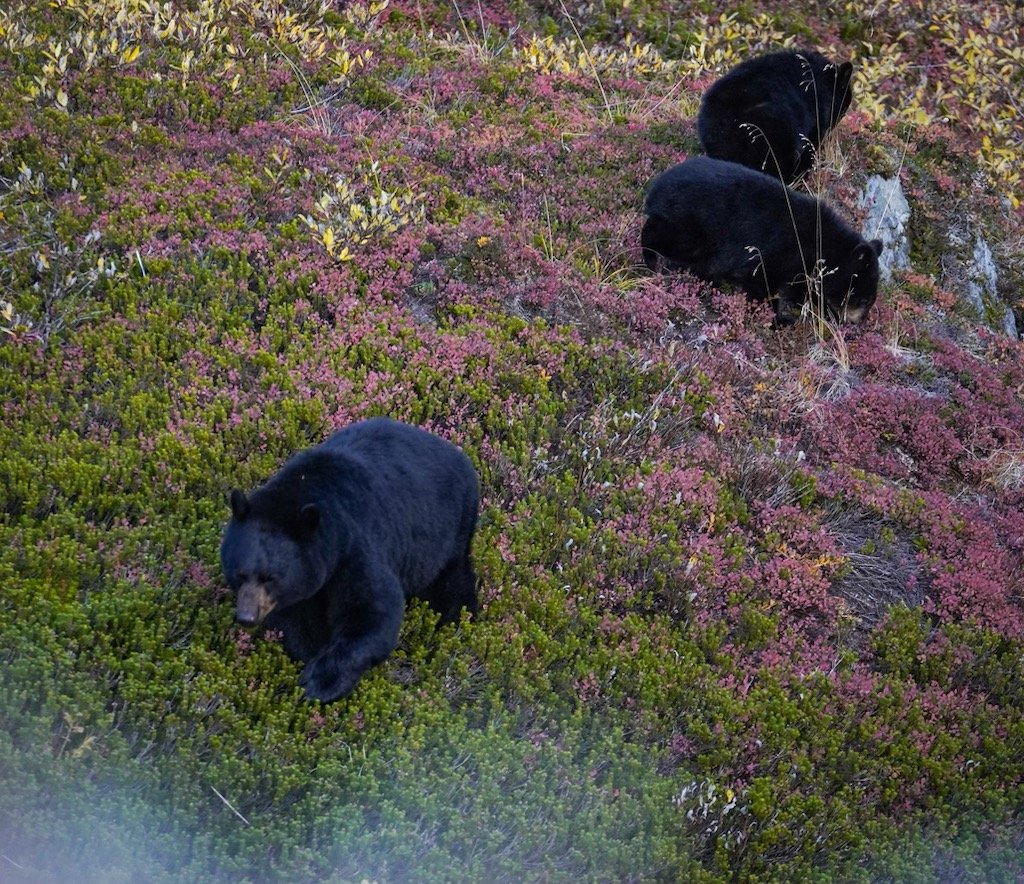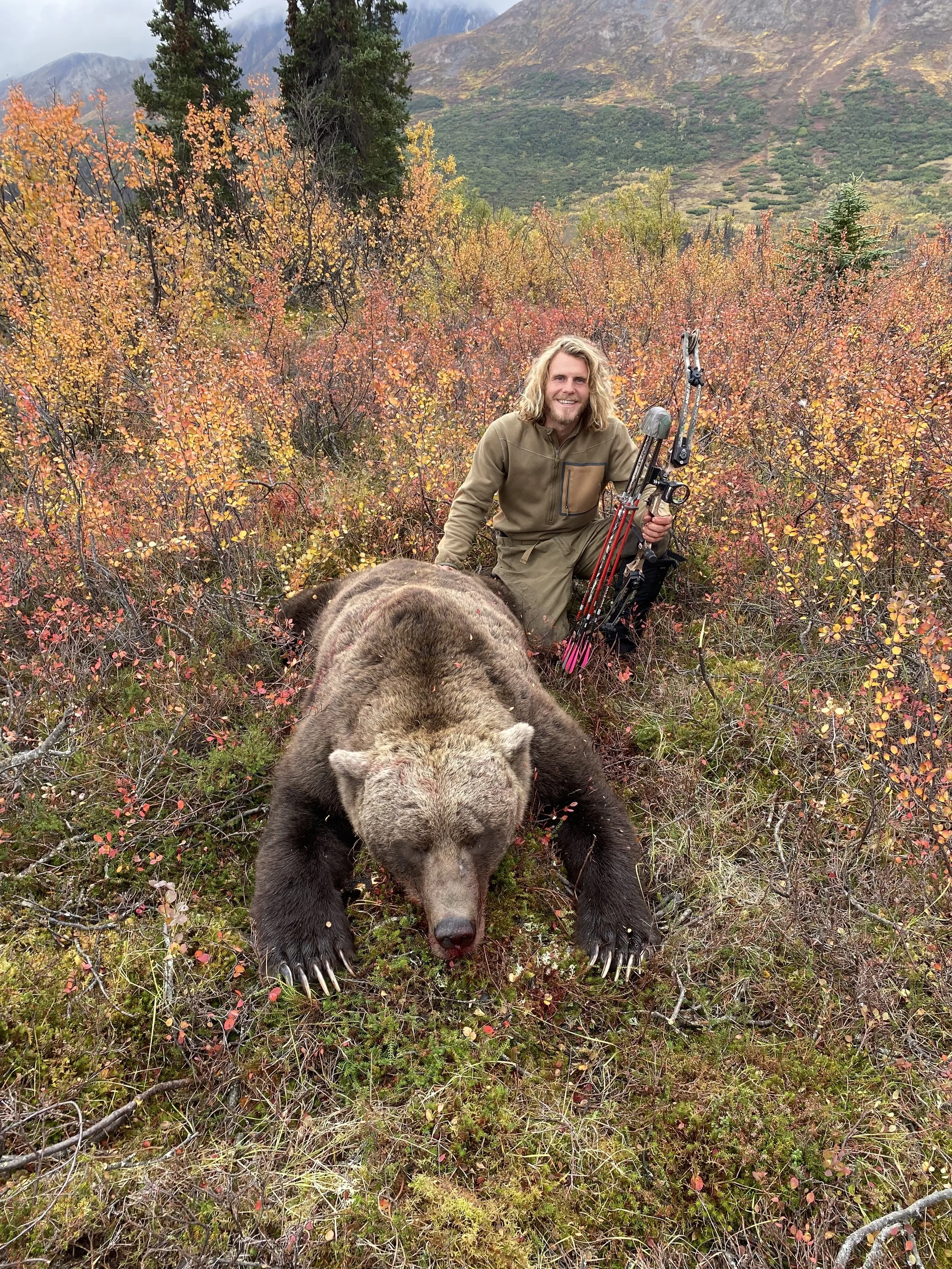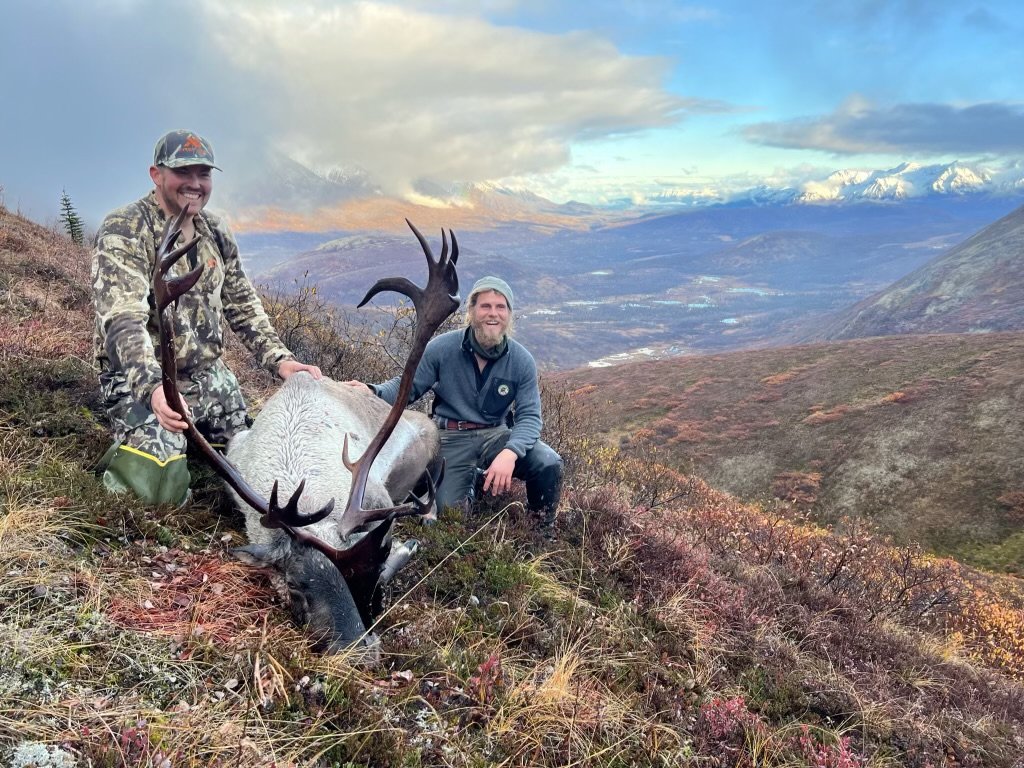
Hunts
Ram
Sheep hunts are conducted in the GMU 16B of the Alaska Range. We will land on a gravel bar or ridge line depending on weather and where the rams are located. I spend a lot of time in the field prior to the hunts locating quality trophies to ensure we do not merely go on a camping trip. The area we hunt is remote and difficult to access with swamps and rivers to navigate before you reach the alders choking the valley floors and the mountain bases. Above the brush line the terrain is extremely rugged. You will need to be in excellent physical and mental condition and be equipped with quality gear. We will be in a spike camp for up to 10 days sparing no effort to accomplish your trophy ram dreams.
Once the animal is harvested the meat will be kept as cool, clean, and dry as possible. I personally take care of the processing of the game meat. The hunter if he desires can take both backstraps tenderloins and a rear quarter; the remaining meat will be kept and used by the owner operator. The cape, and horns will be cleaned and brought to an expeditor to ship to your desired taxidermist.
These hunts are very difficult and unbelievably rewarding should you choose to brave any and all adversities.
Bear
Bear hunts are some of the most difficult hunts in the world. The ability to bring the hide of a bear out of the field and live to tell the tale has long been a story desired. Since man first sharpened stone or strung a mighty bow. Somehow the pursuit of a bear feels like the act of a timeless drama. Mythological when enacted.
If you want to harvest a big bear, you will suffer. It might be the pain of boredom; glassing for long hours, or the bite of the cold and wind that are always fighting to steal your warmth, or maybe heat and bugs and having to stay motionless for long periods of time in order to get a shot opportunity. The brush, swamps, mountains climbed and monotonous hours under the pack are just good fun and will be remembered but are hardly worth mentioning.
With that being said at times as with all hunts the ease can be astounding. It is possible to harvest a good old boar with minimal suffering. Walking onto the first hill to glass on a cold dewy morning with the wind in your face and walking down the valley right to you is the bruin of your dreams. Hunting is a practice of being prepared and loose mentally. If you see the game you want but are fixed and rigid, unable to adapt to the scenario, you will not be successful.
Brown Bears
16B is a brown bear unit where you are allowed to harvest 2 brown bears. Unit 16 is a mountainous area; the brown bears here hibernate longer and get less protein. However that does not take an ounce away from the power and beauty of these mountain monarchs. A mature boar is truly an awe inspiring feat of nature.
We hunt brown bears; in the spring when they are emerging from their dens (April), into their mating season (May) when boars are traveling looking for sows and in late July when the salmon are in the streams.
Black Bears
16B is a black bear unit that allows the harvest of 5 black bears. This is an indication of just how adaptable and able a black bear is at surviving and proliferating. Black bears are often stalked in the mountains just above brush line. Though smaller these are tricky, weary, smart bears that require patience and timing.
We hunt these bears early in the spring when they are on the mountain side eating the first green shoots of vegetation. Depending on the snow depth of the winter the time we hunt them is in May or early June.
Caribou
Alaska is home to the barren ground subspecies of caribou. This is a strange beast with antlers that look like nothing else on the planet. Early in the year they are often found in the alpine trying to cool off and get away from the bugs. Mature bulls are often alone or with another bull and keep pretty much to themselves. Making the hunt difficult, often covering many miles and climbing to the top of many ridges to check the nooks, crannies, and cracks. Though their hide seems colorful and obvious they can make themselves scarce just by laying down in the rocks. This is a very fun mountain hunt that normally produces many stalks and plenty of opportunities.
We hunt caribou in August before the rut. The main reason for this is that caribou is some of the finest wild game you can sink your teeth into. As the fall gets colder and the rut rituals begin, the mature bull caribou forgets about his own health and only lives to protect and procreate. This leaves rutting caribou meat with a distinct smell and flavor reserved for the strongest of palates.
Once the animal is harvested the meat will be kept as cool, clean, and dry as possible. I personally take care of the processing of the game meat. The hunter if he desires can take both backstraps tenderloins and a rear quarter; the remaining meat will be kept and used by the owner operator. The cape, and horns will be cleaned and brought to an expeditor to ship to your desired taxidermist.
This is a very fun mountain hunt that normally produces many stalks and plenty of opportunities.



